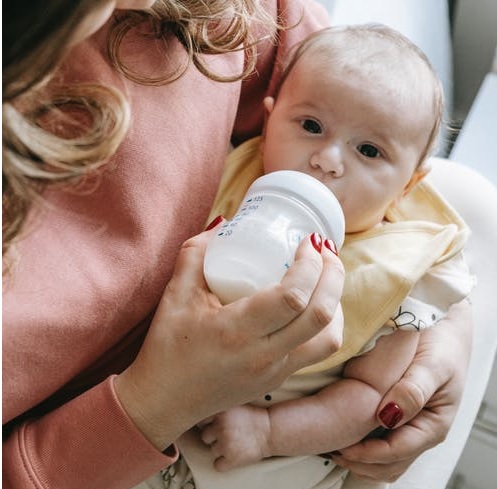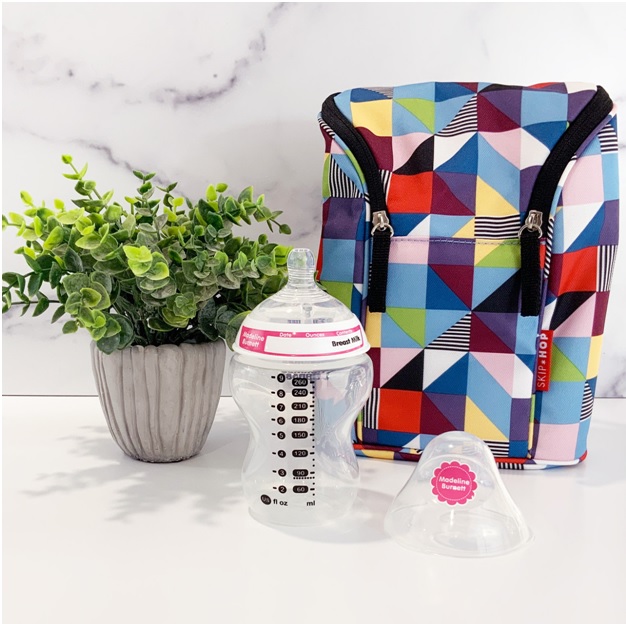Getting ready to send your baby off to daycare for the first time can be both intimidating and downright frightening. This is a natural manifestation of your parental instincts and fears, but there are things you can do to make the transition easier on yourself, your child, and the workers at the daycare to which you’ll be sending him or her.
Daycare employees are responsible for ensuring that children under their care not only are fed but are fed from the appropriate bottle containing the right formula or milk.
Here are some best practices you can observe to streamline cleaning/sterilizing, filling, labeling, and packing baby bottles for daycare.
Cleaning Baby Bottles
The first thing you need to do is clean and sterilize any baby bottles you’ll be filling in order to protect your child against the risk of illness and to prevent cross-contamination.
The first step to cleaning baby bottles is properly washing your own hands. Wash your hands with warm soapy water for at least 20 seconds before handling or cleaning your baby’s bottle - this will help prevent cross-contamination and bacterial buildup.
Next, separate all of the bottle’s components - take them completely apart and rinse them under warm water. This applies whether the bottle is clean and new or was previously filled with formula.
Do not rest any of the bottle’s components in the sink. When you are not handling or rinsing them directly, place them to the side on a clean, fresh paper towel or a new cloth rag.
After rinsing them, scrub them with hot, soapy water. When cleaning the bottle and nipple, there are special bottle brushes and nipple brushes you can use to fully, completely clean all of their interior spaces.
Never use the brushes you use to clean your baby’s bottles for any other purpose, and when you’re done with those brushes, sterilize them in boiling water (if appropriate) or in a dishwasher’s sanitation cycle. (Or in any other manner prescribed by the manufacturer.)
Once the bottles have been rinsed, then scrubbed in hot, soapy water and rinsed again, place them on a clean rack to dry.
Please note this is general cleaning advice and that there may be specific manufacturer instructions on how to sterilize bottles. Some manufacturers may recommend the use of bleach or boiling water, and following the manufacturer's recommendations is the best way to ensure that sterilization protocols are effectively observed.
Preparing Breast Milk
Breast Milk contains antibodies and nutrients that will help your baby’s immune system develop and will foster healthy growth. However, it can be more difficult to prepare and store than formula - here are some tips to follow.
First, clean your baby's bottles as detailed above.
Next, defrost frozen breastmilk in the fridge between 12 to 24 hours in advance of filling your baby’s bottles. Once defrosted, shake the bag or container holding it to mix the cream back into the denser liquid layers.
Once thoroughly defrosted and mixed, fill each bottle with the appropriate amount of breastmilk and place bottles in the fridge before packing them.
Fresh milk should not be kept for more than 24 hours before use, and the same applies to defrosted milk. Also be sure that daycare workers are aware of how to handle, store and reheat breast milk if that’s what you feed your baby.
Preparing Formula
If you feed your baby commercially produced formula, you can prepare it ahead of time before sending your child to daycare.
Again, the first step is to clean and sterilize your baby’s bottles as described above.
CDC recommends boiling water to a temperature of 158 degrees Fahrenheit that will be used to prepare your child’s bottle with. You can also use bottled water that includes purified, distilled, deionized or demineralized water. Once you have your preferred water mix the formula into the water in the correct proportions as indicated by the formula’s instructions.
Stir the formula, add to bottles in the proper amounts, and shake them gently. Then refrigerate them until use.
Unless the manufacturer's official recommendations specifically suggest otherwise, you should use baby formula within 24 hours of preparing it.

Before You Pack Them…
After bottling your milk or prepared formula, always make sure it is kept stored in a cooler or refrigerator until it is ready to be heated and used.
You should never reheat formula or milk more than once. Once you have reheated it, if it is not used, discard it and prepare fresh formula.
After preparing and bottling milk or formula, it is also essential that you label your baby’s bottles in order to ensure that the proper formula or milk is used, in the right order, and to your child! Labeling increases preparedness, eliminates confusion, and most importantly, helps prevent mistakes.
We offer a range of bottle labels for daycare that are very durable. Our bottle labels for daycare are waterproof, tear-resistant, dishwasher-safe, microwave-safe, bottle warmer and sterilizer-safe, and of course refrigerator safe.
They are also available in a wide range of sizes and configurations. In addition to our square, round and rectangular bottle labels, we also carry write-on date and name label stickers which can be used with waterproof pencils and semi-permanent markers), as well as labels specifically designed for popular bottles.
We carry standard baby bottle labels designed to fit the body of the bottle (such as if the rim is too narrow or has ridges), slim baby bottle rim labels designed to fit ComotomoⓇ bottles, and curved bottle rim labels designed to fit slant back rims, such as those found on Tommee TippeeⓇ and AventⓇ bottles.

Preparing With Other Labels for Daycare
In addition to these baby bottle labels for daycare, we carry a wide range of other daycare labels specifically designed to help you and your child organized before heading out to daycare.
We carry shoe labels, clothing labels, meal labels, daycare label starter packs that come with 50 labels, as well as baby label packs (with 84 waterproof labels, perfect for labeling pacifiers, cups, food containers, wipes, diaper cream, and other accessories) and daycare label packs (with 106 labels, ideal for labeling the accessories mentioned here and so much more).
Get prepared and organized with our daycare labels and if you have any questions about specifications, appropriate use, or would like recommendations, get in touch with us.

